The curse of knowledge: when we are given knowledge, it is impossible to imagine what it's like to lack that knowledge
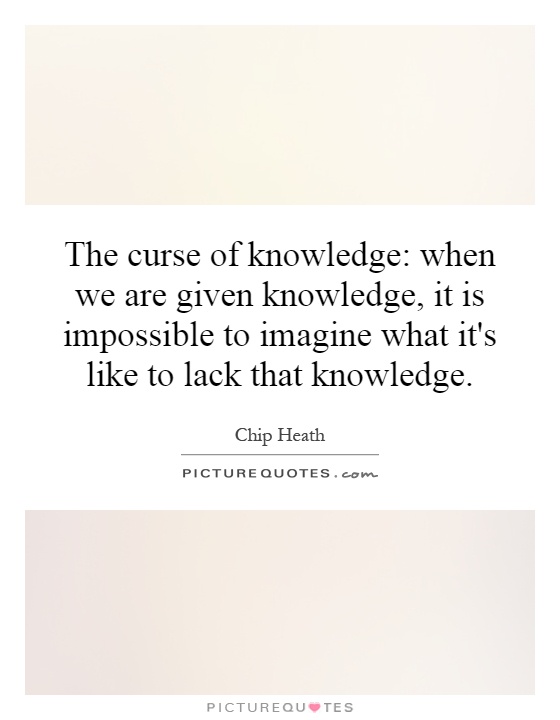
The curse of knowledge: when we are given knowledge, it is impossible to imagine what it's like to lack that knowledge
Chip Heath, a renowned author and speaker on the topics of decision-making and change, often discusses the concept of the curse of knowledge in his work. This phenomenon refers to the difficulty individuals face in understanding or empathizing with others who do not possess the same level of knowledge or expertise as they do. In other words, once we have acquired a certain level of knowledge, it becomes nearly impossible for us to imagine what it is like to lack that knowledge.One of the key reasons why the curse of knowledge is so pervasive is that our brains are wired to seek patterns and make connections based on the information we have already acquired. This cognitive bias can make it challenging for us to step outside of our own perspective and consider how someone with less knowledge might perceive a situation. As a result, we may unintentionally come across as condescending or dismissive when trying to explain complex concepts to others.
Chip Heath often emphasizes the importance of overcoming the curse of knowledge in order to communicate effectively and make informed decisions. By acknowledging our own biases and actively seeking to bridge the gap between our own knowledge and that of others, we can improve our ability to connect with those around us and foster more meaningful relationships.
One practical strategy for overcoming the curse of knowledge is to practice active listening and empathy. By taking the time to truly understand where someone else is coming from and validating their perspective, we can create a more inclusive and collaborative environment. Additionally, Chip Heath suggests using storytelling and analogies to simplify complex ideas and make them more accessible to a wider audience.

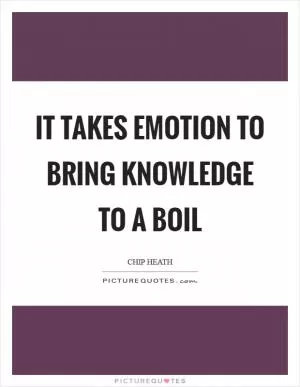
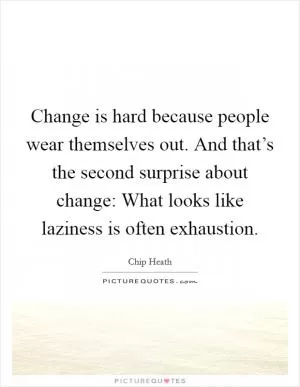
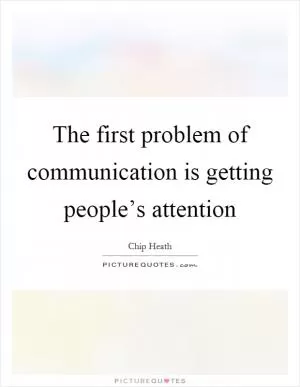


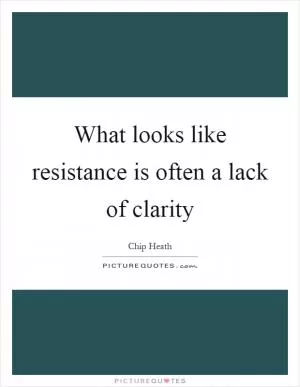

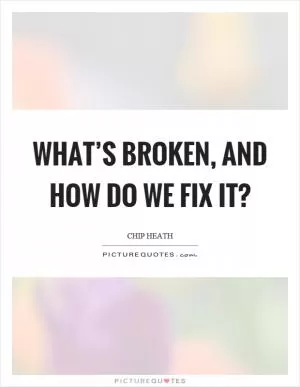

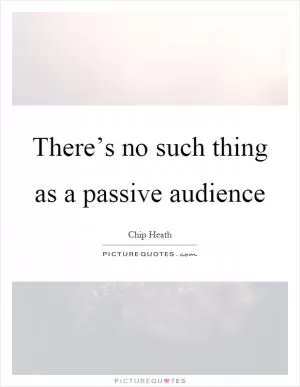

 Friendship Quotes
Friendship Quotes Love Quotes
Love Quotes Life Quotes
Life Quotes Funny Quotes
Funny Quotes Motivational Quotes
Motivational Quotes Inspirational Quotes
Inspirational Quotes